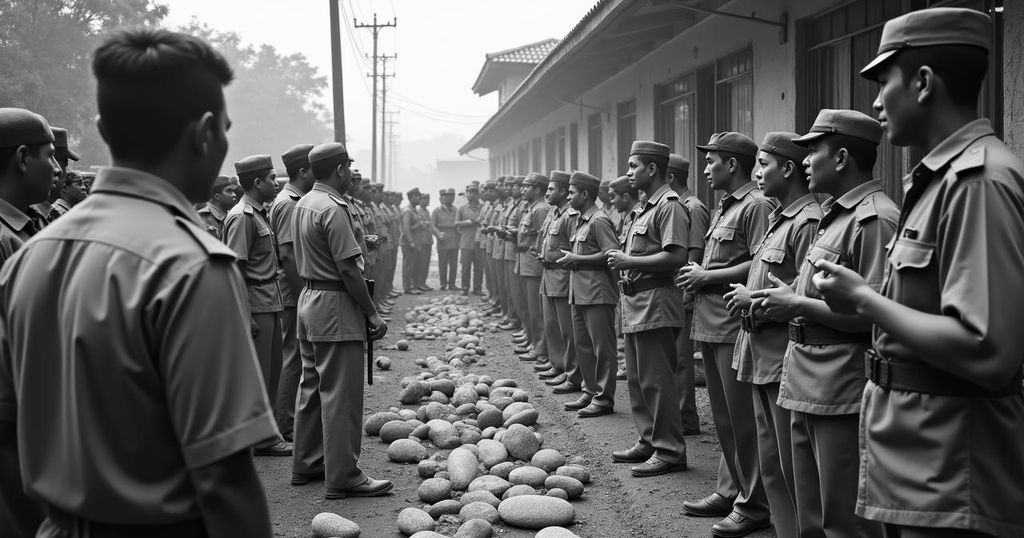International Tribunal Holds Indonesia Accountable for 1965-1966 Mass Killings
The International People’s Tribunal in The Hague has determined that the Indonesian government is responsible for crimes against humanity linked to the mass killings of suspected communists between 1965 and 1966. The court called for an apology to victims and their families, as well as comprehensive investigations into these events and reparations for survivors.
On July 20, an International People’s Tribunal held in The Hague formally ruled that the Indonesian government is culpable for crimes against humanity in relation to the mass killings that transpired between 1965 and 1966. This horrific purge resulted in the deaths of an estimated 500,000 to one million individuals suspected of having ties to the Indonesian Communist Party (PKI). The military-led extermination facilitated the ascendance of former President Suharto’s New Order regime. The tribunal’s final verdict highlighted ten severe human rights violations committed during this period, categorizing these acts as genocide against PKI members, their supporters, and allies of President Soekarno, including individuals associated with the Indonesian National Party (PNI). Presiding Judge Zak Yacoob remarked, “The State of Indonesia is responsible for and guilty of crimes against humanity consequent upon the commission and perpetration, particularly by the military of that state through its chain of command, of the inhumane acts,” as outlined in the tribunal’s published report. Specific violations cited by the tribunal included mass killings, torture, forced disappearances, sexual violence, and destruction. Yacoob added that the systematic attack against the PKI and its affiliates was carried out through a campaign of deceptive propaganda. Furthermore, the tribunal underscored that Indonesia holds ultimate accountability for the military’s actions, emphasizing the state’s failure to preempt these inhuman acts or to hold the perpetrators accountable. Judge Yacoob noted, “To the extent that some crimes were committed independently of the authorities, by so-called ‘spontaneous’ local action, this did not absolve the State from the obligation to prevent their occurrence and to punish those responsible.” In concluding the ruling, Judge Yacoob made several recommendations, urging the Indonesian government to issue a formal apology to all victims and their families in connection with the atrocities of 1965. The tribunal also called for investigations into these crimes, the prosecution of those responsible, and adequate reparations and assistance for survivors and victims’ families.
The mass killings in Indonesia from 1965 to 1966 were a series of anti-communist purges that resulted in widespread violence and loss of life as the military sought to eliminate the Indonesian Communist Party amidst a backdrop of political tension. The event led to the consolidation of power by Suharto and marked the beginning of his authoritarian regime, known as the New Order. Despite the scale of these atrocities, nearly six decades later, there has been minimal accountability or acknowledgment of the crimes by the Indonesian state, making the tribunal’s recent declarations significant in recognizing the victims and addressing historical injustices.
In summary, the International People’s Tribunal has formally recognized the Indonesian government’s accountability for the mass killings and human rights violations that occurred during the 1965-1966 purges. The tribunal’s recommendations call for an official apology, thorough investigations, and reparations for victims to address this historical injustice. The ruling emphasizes the necessity for the state to confront its past and ensure that such atrocities are neither forgotten nor repeated.
Original Source: jakartaglobe.id




Post Comment